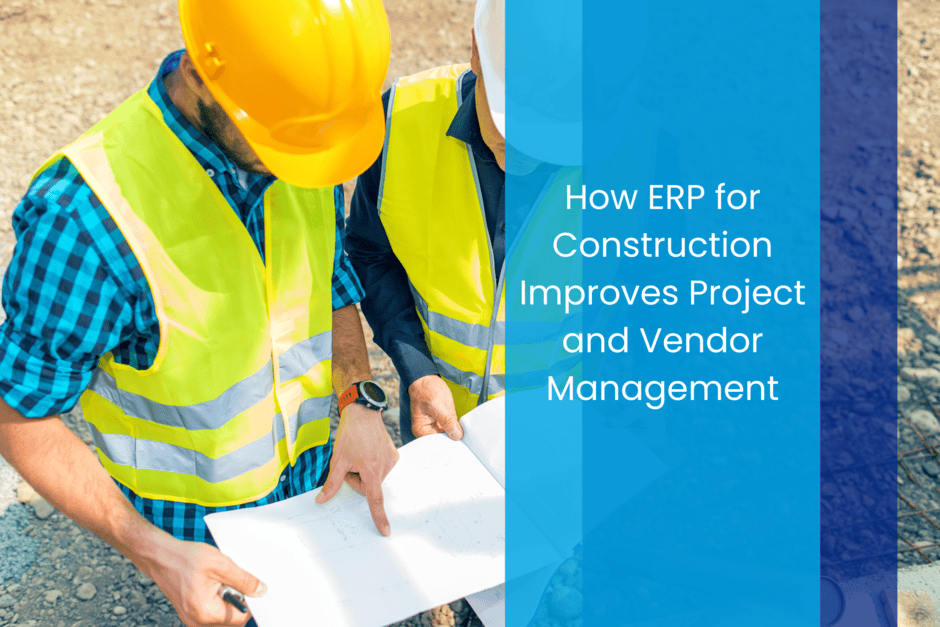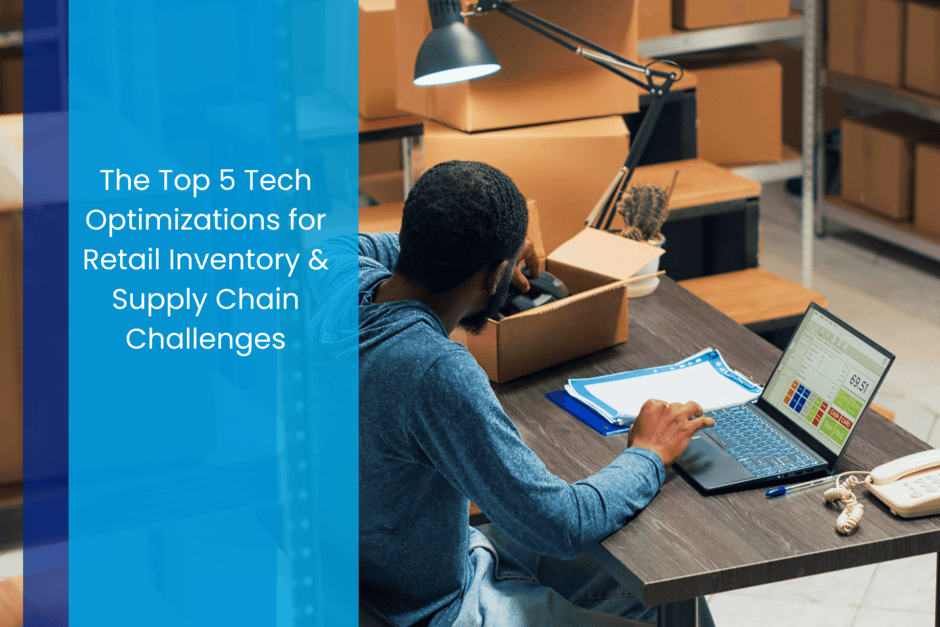Running a construction business means juggling numerous variables—crews, budgets, materials, vendors, and ever-changing deadlines. When these elements are managed across separate systems or spreadsheets, it’s easy for things to slip through the cracks, leading to costly mistakes and delays.
An ERP for construction can vastly change this dynamic. By connecting your financials, project management, and operations in one cohesive system, it offers a real-time, unified view of your business. This visibility empowers you to manage your projects more efficiently, track costs accurately, and strengthen vendor relationships.
In this blog, we’ll explore how the right ERP for construction can streamline project management, job costing, and vendor operations, ultimately boosting your business’s productivity and profitability.

Project Costing: More Control, Less Guesswork
Construction projects are notoriously complex, and without real-time visibility into costs, it’s easy for budgets to spiral out of control. An ERP for construction allows you to track labor, materials, equipment, and subcontractor expenses as they happen, not after the fact.
With an ERP tailored for construction, you get:
- Real-time project cost tracking – Monitor actual spend vs. budget, giving you clarity on where your money is going.
- Accurate forecasting – Access up-to-date financial data that helps you predict cash flow needs and adjust strategies mid-project.
This level of visibility not only helps you stay on top of costs but also empowers you to make informed decisions on the fly, improving your margins and keeping projects on track.
Smarter WIP Reporting
Work-in-progress (WIP) reporting is essential for understanding project progress and financial health. With an ERP for construction, WIP calculations are automated, so you get real-time updates on job status and percentage of completion.
This removes the manual effort of updating spreadsheets, ensuring that your financial reports are always aligned with the actual project status. The result? Improved decision-making and more accurate forecasting.
Managing Change Orders and Phased Projects
Construction projects frequently face scope changes, unforeseen delays, and other disruptions. An ERP system helps you manage these changes by automating approval workflows and updating budgets in real time.
Multi-phase projects are easily tracked in a single system, giving you visibility into each phase while also managing the overall budget and schedule. This ensures that change orders are documented, and budgets are adjusted accordingly without losing control.
Retainage and Progress Billing Made Easy
Progress billing and retainage are common in construction, but they often complicate cash flow and invoicing. An ERP simplifies these processes by allowing you to:
- Automate milestone billing – Link billing schedules to specific project milestones, ensuring timely payments.
- Track retainage – Manage retainage rules consistently across projects, ensuring that holdbacks are applied as needed and payments are issued on time.
By automating these elements, your ERP ensures smoother billing cycles and better cash flow management, making it easier to keep your projects—and your business—moving forward.

Vendor and Subcontractor Management: Centralized and Simplified
Managing vendors and subcontractors is often a cumbersome, manual process. You have to track contracts, insurance, payment terms, and compliance on top of managing performance. Without the right tools, this can become chaotic, leaving room for errors and missed deadlines.
An ERP for construction centralizes all vendor and subcontractor information, making it easier to:
- Track agreements and compliance – Monitor insurance certificates, bonding, and licensing requirements, with automatic alerts for renewals.
- Streamline procurement and billing – Keep everything—from purchase orders to invoices—in one system, ensuring that each cost is accurately allocated to the right project.
- Enhance vendor relationships – A centralized system fosters better communication and collaboration with your vendors, helping you avoid delays caused by paperwork or miscommunication.
With this level of organization, you can keep your projects running smoothly while maintaining strong relationships with those who help bring your work to life.
Procurement and Vendor Billing
Efficient procurement and vendor billing are crucial for maintaining your project budgets and cash flow. When done manually, mistakes can be costly—overpayments, missed invoices, and delays in material delivery.
An ERP system helps you stay on top of procurement by:
- Matching invoices to approved POs – Prevent billing errors by ensuring that you’re only paying for what was ordered.
- Tracking material costs by project – Allocate costs accurately, ensuring that project-specific budgets stay intact.
- Automating approval workflows – Speed up the procurement process and reduce the risk of errors.
By automating these processes, an ERP saves you time, reduces administrative overhead, and ensures your financials are always up-to-date.
Compliance Without the Chaos
Construction is a highly regulated industry, and missing a single compliance document can lead to project delays or legal issues. Lien waivers, insurance certificates, safety records, and licenses are all vital to your success, but tracking them manually can lead to costly mistakes.
An ERP for construction ensures that you stay compliant by:
- Automating document tracking – Get alerts for expired insurance certificates or other required documents.
- Centralizing all compliance information – Store and easily retrieve necessary documentation from one digital hub, making it accessible to everyone in your company.
- Maintaining an audit trail – Keep a secure, time-stamped record of all documents, ensuring you’re always prepared for audits or inspections.
By eliminating the chaos of manual tracking, an ERP reduces your risk and keeps your projects compliant and on schedule.
Final Thoughts: Why ERP for Construction Is a Smart Move
The construction industry is dynamic, but it doesn’t have to be chaotic. An ERP for construction helps you streamline operations, reduce risks, and boost your bottom line by connecting your financials, projects, procurement, and compliance in one system.
With improved visibility and better control over costs, billing, and vendor relationships, an ERP gives you the tools to:
- Stay on budget with real-time project costing
- Simplify procurement and vendor management
- Ensure compliance and reduce risks
If you want to gain a competitive edge in today’s fast-paced construction environment, adopting an ERP solution could be the next step toward achieving smarter, more efficient operations.
Want to Dive Deeper?
Caravel specializes in helping construction companies implement ERP solutions that streamline operations, improve profitability, and reduce risk. With deep industry expertise, we understand the challenges you face—and how to design a solution that works for your business.
If you’re ready to explore how an ERP system can transform your construction business, we’re here to help. Let’s talk about what success looks like for you.




